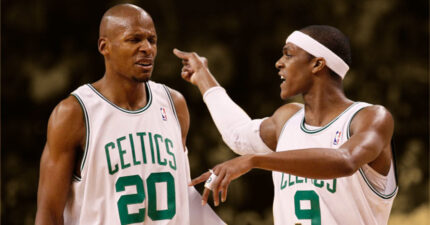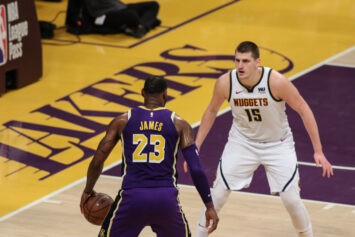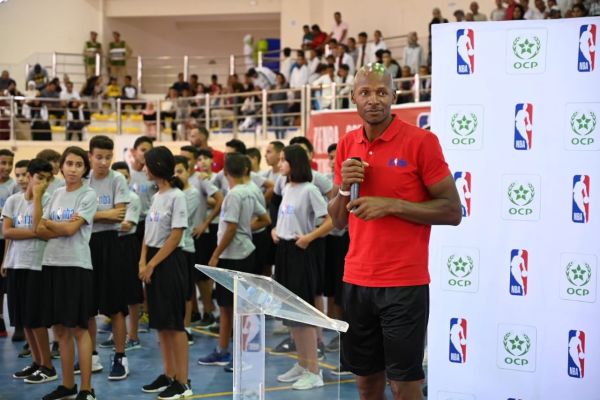When Ray Allen announced his retirement from the NBA in November of 2016, he wrote an emotional letter that was published by The Player’s Tribune.
The letter was a personal reflection and a walk back in time to moving around the world as a military brat, the angst he felt on always being the new kid that people didn’t get a chance to know. He talked about his time at UCONN, where Hall of Fame coach Jim Calhoun showed him what hard work, and the game, was all about.
Ray Allen’s best moments | 2018 Basketball Hall of Fame Class | ESPN
Watch and listen as Ray Allen describes his beautiful 3-point shot that has switched the momentum in many games throughout his Hall of Fame career. (1:31) Allen chats about his decision to leave the Boston Celtics for the Miami Heat and relationship he had with his former teammates Paul Pierce and Rajon Rondo.
And he talked about what his nearly two-decade career, which culiminates in his induction into the Hall of Fame today, will mean down the road.
“Youll put up more than 26,000 shots in your career,” he wrote. “Almost six out of 10 wont even go in…Dont worry, though. A successful man is built of 1,000 failures. Or in your case, 14,000 misses.”
“But if Im being real with you, what youll realize after you win the first title is that the thrill is fleeting,” he wrote. “The vindication is fleeting. If you only chase that high, youre going to end up very depressed. The championships are almost secondary to the feeling youll get from waking up every morning and putting in the work. The championships are like when you were sitting in class at UConn with your shirt and tie on. Theyre just the culmination.”
In 199596, after his junior season and before he left the University of Connecticut early to enter the NBA Draft, he was named a first-team All-American and the Big East Player of the Year.
Allen won two NBA titles, delivered a memorable performance as Jesus Shuttlesworth in He’s Got Game, was a 10-time NBA All-Star and he’s the leagues all-time 3-point scoring leader. It’s pretty safe to say that he walked away having gotten as much from the game as he possibly could.
And he did so with a sense of self-assuredness and a regal bearing that will be difficult for another to duplicate.
And it just seems fitting that one of the other inductees into this Hall of Fame class is Maurice Cheeks.
Maurice Cheeks: Philadelphia 76ers Mixtape
Enjoy.
He was reared on the South Side of Chicago in the notorious Robert Taylor Homes. Those particular housing projects were, at one time, the countrys largest a two-mile stretch that consisted of twenty eight, 16-story apartment buildings that housed upwards of 27,000 residents.
Cheeks honed his game on the Windy Citys asphalt, the incubator that produced legendary names like Mark Aguirre, Isiah Thomas, Derrick Rose, Ben Wilson, Dwyane Wade, Cazzie Russell, Tim Hardaway, Terry Cummings, Quinn Buckner and Billy The Kid Harris, among countless others.
Selected by Philly in the second round of the 1978 draft after a remarkable college career at West Texas State, his unselfish style and ability to push a frenetic attack in the open court elevated the Sixers from a talented collection of disparate parts to a cohesive force to be reckoned with.
In only his second year in the league, he pushed the Sixers into the first of their three 80s Finals appearances, where they lost to the Lakers in Magic Jonsons phenomenal rookie season.
During the 1982-1983 season, he quarterbacked one of the greatest starting fives in the history of the NBA, leading the incomparable crew of Andrew The Boston Strangler Toney, Bobby Jones, Moses Malone and Julius Erving to the promised land.
Mo Cheeks remains one of my favorite point guards of all-time, the consummate floor general with bizzaro handles, night-goggle vision, leadership and an uncompromising work ethic.
Surrounded by other players during their careers who were louder and gobbled up more of the spotlight, Cheeks and Ray Allen went about their business quietly, with a class and dignity that many of today’s young players would do themselves a favor by emulating.



